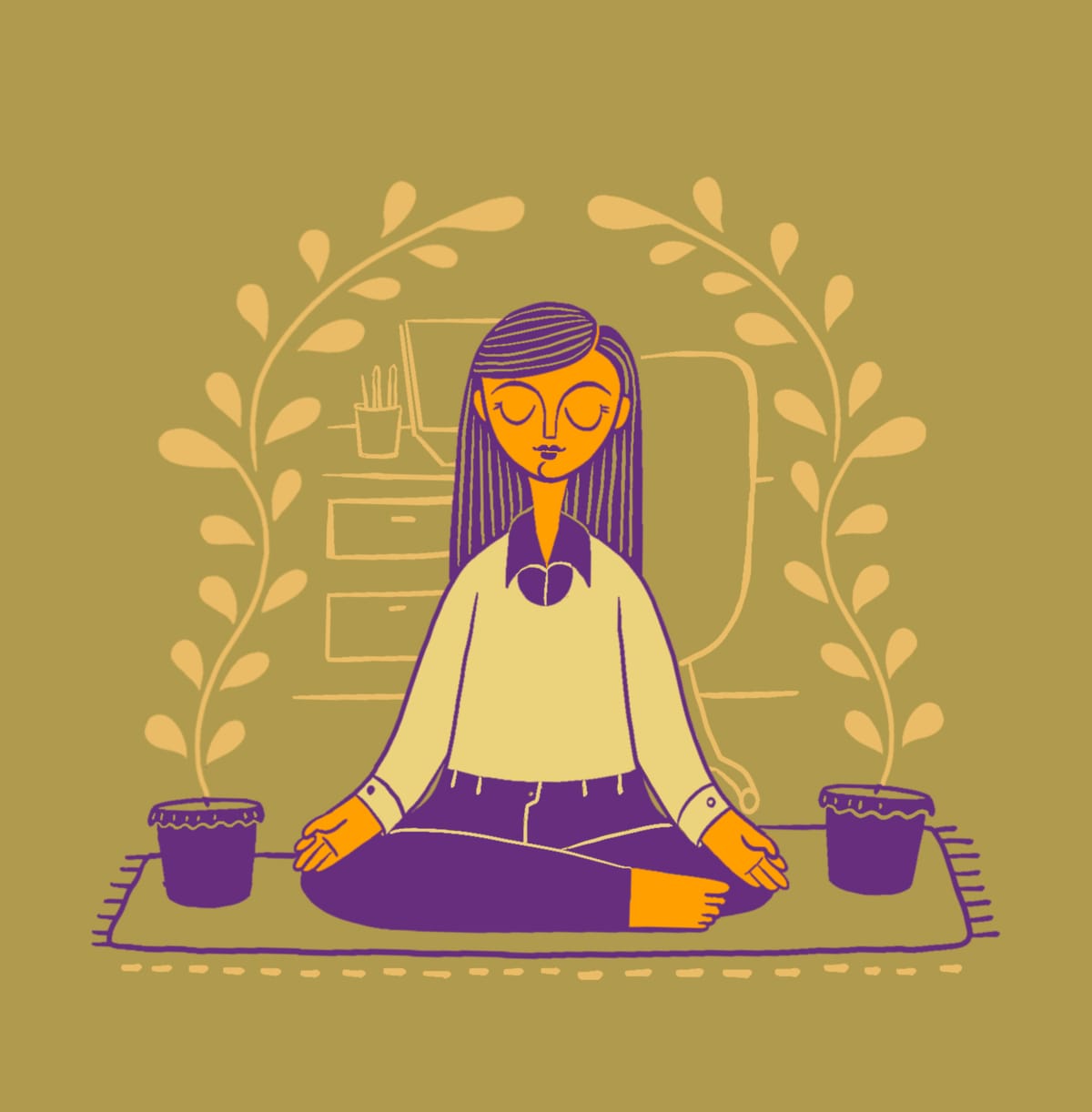How do wellbeing courses benefit you in everyday life?

If you’ve wondered how therapists help you unravel your deep-seated emotions and help you process them healthily, here’s the answer – they use scientifically proven techniques to help you. Whether you want to improve your coping skills, are going through temporary distress, or struggling with a mental illness, these techniques come in handy for therapists to help you.
What if you could learn these techniques and use them on yourself? (with proper guidance of course!). Those ‘aha’ moments you have in therapy sessions – what if you could experience them by quiet introspection, and anchor yourself when faced with challenging situations?
You certainly can. That’s where wellbeing courses come in handy. This blog will tell you everything you need to know about taking basic-level wellbeing courses, as a commoner, and benefitting from them immensely.
What wellbeing courses can you enroll in as a person with no psychology background?
You don’t need to be a psychology graduate, a practicing psychologist, or even a person with a degree in humanities to take up these courses. You also need not have experienced emotional distress to choose to join such courses. Anyone who wants to better themselves using therapeutic techniques, take accountability for their wellbeing journey, and start on a positive path can enroll in any beginner-level course on the following therapy techniques and benefit from them:
- Mindfulness meditation
- Cognitive behavioral therapy (CBT)
- Progressive muscle relaxation (PMR)
- Dialectical behavior therapy
- Acceptance and commitment therapy
- Emotion-focused therapy (EFT)
- Compassion-focused therapy (CFT)
How are wellbeing courses structured?
Wellbeing courses generally take admissions from therapists and commoners alike, but teach, assess, and guide equitably for all. Since commoners may not know clinical terms and procedures, any course that admits commoners will ensure they make learning simple and as smooth as possible.
Phase – 1
These courses will have two segments – theoretical, and practical. Theoretical will involve online/offline teaching and guided discovery of therapeutic concepts and their underlying rationale. It’ll involve case studies, group discussions, and guidance from the facilitator, who’ll most likely be a seasoned psychologist with years of experience behind them.
You will be given tasks to do in between classes (say, journaling but following a therapeutic model, identifying your thought patterns, finding opportunities to practice compassion to self and others, etc).
These assignments can be performed by anyone. That’s how they’re designed to be. Some of the classes will also involve live demonstrations of certain techniques, so you know how to use them when you try doing it for yourself.
Phase – 2
Another important phase of these courses is peer learning. You team up with other participants and practice therapeutic techniques taking turns. In these activities, you separate into pairs, wherein one person leads the session as the therapist, and the other is the client.
After the ‘therapist’ has helped the ‘client’ complete administering the techniques successfully, the roles are reversed. The course facilitator closely monitors each group session to ensure techniques are being administered properly. Peer learning is key, especially for learning techniques that involve emotions. Some courses also require you to pass an evaluation at the end of the program, to ensure you’ve successfully completed and understood the concepts taught in the course. This evaluation is essential if you’ll practice them with other people (in a people-facing role).
Skills you gain from learning and applying therapy techniques
Wellbeing courses are more than just imparting theoretical concepts. Most of them focus on equipping you with readily transferable skills that you can start implementing on your own:
- Helps you consciously bring attention to your thoughts and clearly see how they influence your behavior.
- You will be better able to compartmentalize different aspects of your life, and not allow emotions that you feel deeply in one area to negatively affect another.
- You learn healthy coping mechanisms to handle challenges, without succumbing to an emotional overwhelm.
- Form healthy habits and thinking patterns that help enhance your wellbeing.
- Build a richer emotional vocabulary for yourself
- Set a field of comfort and safety for yourself, no matter what situation you are in.
- Identify and address underlying, and unconditional core beliefs that are surfacing in all areas of your life.
- Helps you vent and find solutions to unresolved issues, and unhelpful thoughts and replace them with helpful thoughts and actions.
- Identify how silent assumptions shape cognition and behavior, and how to change them.
- Carefully study your patterns and the patterns of those around you, to empathize and give them emotional first-aid
- How cognitive errors cloud our judgment, and how to slowly but steadily steer clear of them
- Bring in behavioral change by changing neural pathways by exposing your mind to positive and helpful thoughts consistently
Does this mean you don’t need to consult a therapist anymore?
No. These therapeutic courses aren’t a replacement for psychotherapy. They can be taken up to complement the deep work you doing with your therapist, and to regulate your emotions in between your therapy sessions.
The facilitator will not function as your therapist during these sessions. Instead, they will guide you as you discover your deep-seated emotions, thoughts, and beliefs. You can administer these techniques yourself while parallelly accessing therapy, so you get exclusive, real-time feedback from your therapist.
How did I benefit from taking Manah Wellness’ CBT Basics Course?
Recently I signed up for Manah Wellness’ Cognitive Behavioral Therapy (basics) course tailor-made for commoners and also available to therapists. In my batch, there are people from all walks of life, including school-going students aged 13 and 14, who want to learn how to think better and clearly. There are practicing therapists, and people from other professions as well.
I don’t have any background in psychology, I’m an absolute beginner, and I’m able to assimilate every technique taught in the class.
The course facilitator is Manah’s Clinical Director Debasmita Sinha herself. She makes all concepts, techniques, and rationale super easy to understand and cites interesting and relatable analogies that make the techniques seem like something we already know, but are just resurfacing to our awareness. She takes anonymized anecdotes and case studies from her rich practice of 15+ years and states them at the right places for us to fully understand the concepts.
In one of our sessions, when talking about how powerful practice is to replace unhelpful thoughts with helpful ones, Debasmita said, “As you get exposed to a stimulus or thought repeatedly, it has a greater chance of becoming a belief. Neural pathways are strengthened by consistent exposure to the stimulus or thought. They gain root when emotions and memories are linked to them over time. That’s why behavioral change is possible with practice.”
At the end of every session, we get an assignment, and it’s not the kind you’d expect. Last week we were required to write a story, the week before were journaling for at least 3 days, etc.
We have regular peer learning sessions where we practice what we learned. Previously I was never able to hold down a new habit for long. Now, after learning what triggers my resistance and slowly addressing it, I’ve been able to journal using CBT’s five-aspect model.
It has been only a few weeks since we learned the five-aspect model, but as I started using it on myself, with guidance from Debasmita, I’m able to see my recurring unhealthy patterns, unhelpful thoughts in different situations, and it has been truly revelatory for me. Now I’m able to bring these up with my own therapist and start addressing them.
If you’d like to join the next cohort, keep a watch on our website, and social media handles. Stay tuned for further updates!





